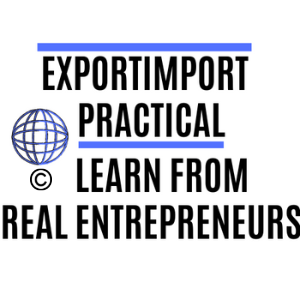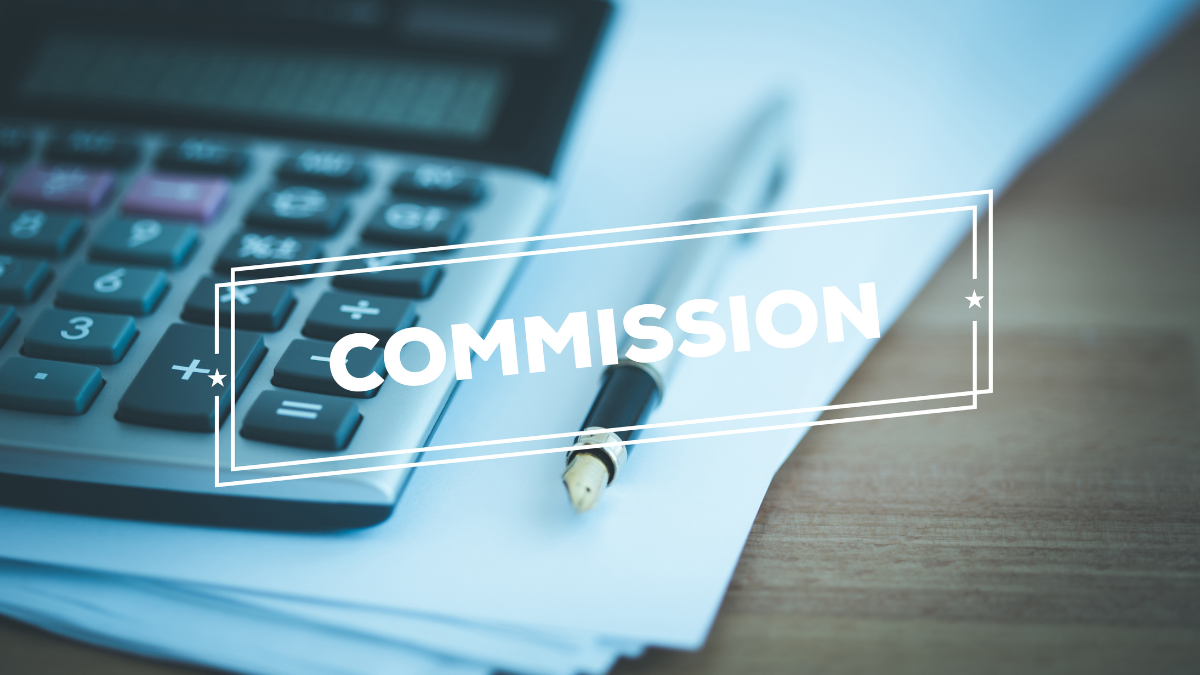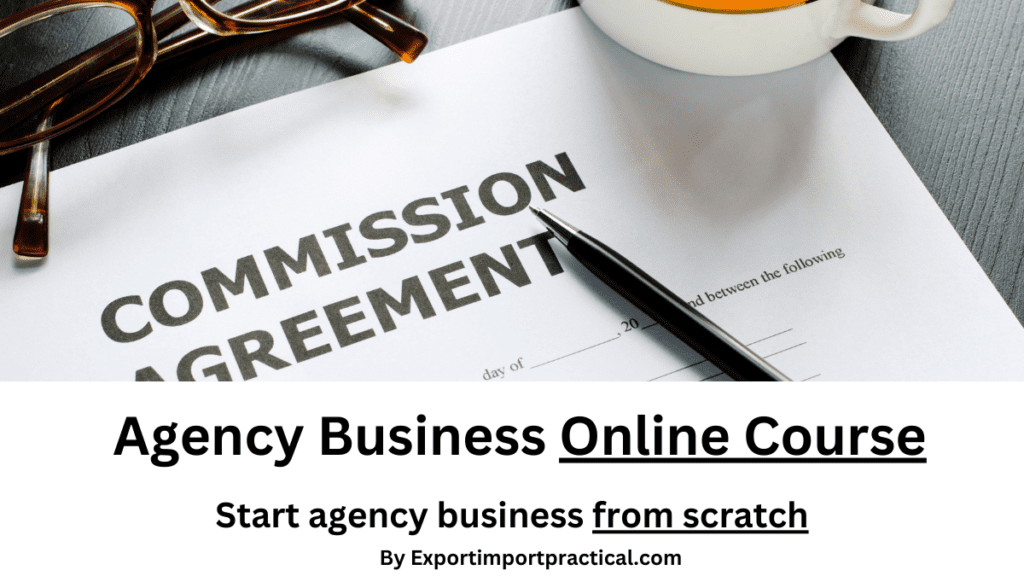In the export-import business, one of the easiest ways for getting started is to start as a commission-based export-import agent.
Starting as an export-import agent, has a lot of advantages like you don’t need a lot of money and you also don’t have high business risks. Furthermore, you no need to think about purchasing inventory or operating a warehouse.
The export-import agent just needs to find buyers (who are ready to order) and sellers and brings those two sides together. Later you as a commission agent or agency will earn a commission fee from the transactions that both sides will execute.
However, the challenge is to ensure that you receive the agreed commission fee, which is the most critical part of your business.
FREE Export-Import business course includes the following lessons:
- How to start as a direct exporter/importer
- How to start as a commission agent
- The best way to approach selling & finding customers
- The biggest mistake beginners are doing
- Guidelines to help you decide your next steps & taking action
In this article, we will discuss two essential strategies that an export-import commission agent can use to protect their commission fee, and avoid being swept out of the game.
Protect the commission fee with the solid commission contract

Until you are not working for a very close friend or relative, it is elementary, that you are signing a solid commission contract with your supplier. Commission agreement is the legal tool that will protect your commission fee for the work you are doing.
Usually, the commission can be earned over a long period. The agent can earn agreed % from the total amount of transactions executed. This all needs to be marked on the commission contract.
Export-import agents are getting paid because they are finding a better supplier or they help to sell more. They help to make extra revenue or they can save costs. That’s why they exist and that’s why they getting paid.
NB! Export-import agents get paid because they help save costs or make more sales!
Commission agreements can be done with only one side or on both sides
The commission agreement can be signed by one party or both parties involved in the transaction. For instance, if you are working for a supplier and helping them find more buyers and get orders, you would sign a contract with only the supplier, while if you are helping a factory find a lower-priced raw material supplier, you would receive commission fees from both the supplier and the factory.
It is advisable for less experienced agents and beginners to sign a contract with only one party first and with a party located in the same country as the agent. This way, the agent is familiar with the laws and can better protect their rights.
The commission agreement should also specify the terms of payment, penalties, and sanctions if either party fails to meet its obligations. The step-by-step process of how the sales or purchase transactions will be executed and the exact timing of the commission payment should also be outlined in the agreement. In addition, a clause should be included to ensure that even if one party decides to deal directly with the other party, the agent still receives the full commission fee based on the contract period.
What commission agreement should include and how to sign
A solid commission agreement needs to include all the details of the deal and the duration of the contract.
- Sales or purchase price of the product(s) that will be sold or bought.
- Commission % of the sales or purchase price. Usually, it is in the range 1-5% depending on the product(s)
- The quantity that will be traded per month, for example, 100 tons per month
- The length of the commission period. Example 1 year contract
- Seller or buyer contacts (who will pay the commission)
- Commission agent details
- The total amount of the commission fee for the contract period. For example 100 tons per month, for 12 months. Price is 300 USD per ton and the commission fee is 3% of the price, the total commission will be 10 800 USD.
- Responsibilities and rights of the commission agent
- Responsibilities and rights of the supplier or buyer ( depending on whom you sign the contract)
Secondly, it’s very important, that the terms of how the commission fee will be paid out are outlined. Also, the sanctions and penalties, if parties won’t keep their words.
- Step-by-step description, of how sales or purchase transactions will be executed and who does what and when.
- Exactly when and during what period the commission fee will be paid out to the agent. Include bank details.
- Notification ( clause), if one side wants to deal directly, without the agent, the agent still needs to get its agreed total commission fee based on the contract period.
- Penalties if sides won’t meet their obligation and duties and avoid the commission fee.
- The applicable law and the place ( court or arbitrage) where sides will approach for protecting their rights. We suggest that an agent always use its own country’s law as applicable law.
The contract needs to be properly signed and prooved. Must be clear that the right persons have signed the contracts and persons had the right to do so. To prove the identity of the signees, we suggest the following.
- Add a copy of each person’s ID card or passport to the commission contract.
- If possible go to the notary or arbitration and sign a contract there with the client. This way the contract is proved by a notary or lawyer. Also, a notary or lawyer will check the person’s identity and confirm it.
We also suggest, before signing any commission agreement, talk to your lawyer first and ask for legal advice. Also, the contract should be concluded by a professional lawyer.
Learn more, what are the factors of success for the commission agents and for the agency business, and what is really possible to achieve in this business. Our free webinar is below.
PS! We have also designed a comprehensive agency business online course with video lessons. Check it out here: Export/import business agency course.
Be a valued partner for your clients
To ensure long-term success as an export-import agent, it is essential to be a valuable partner to your clients ( suppliers and buyer). Building strong relationships with buyers and sellers not only makes it easier to secure new business, but it also helps to protect your commission fee. When you are a trusted and valued partner, clients are more likely to honor the terms of your agreement, which includes paying your commission fees.
Always keep in mind, In business, you as the commission agent will be paid for two things only:
1) You help someone make more money (bring more orders and sales)
2) you help them save costs ( offer better suppliers and deals).
If you always keep the previous two in your mind and always work on, to offer great value to your partner, then they don’t have any reason to avoid you.
Very often agents just want to earn a commission, but they don’t think, about how much value they offer to the client. If they won’t offer any value, then why should anyone pay the commission?
If you are able to permanently offer value to your client, then you no need to worry about losing your commission.
Below are some ideas, on how you can offer more value to clients and make them want to work with you long period of time.
- Find always better deals for your clients and negotiate the best prices for your clients. Present those deals to your clients when it’s the right time.
- Offer new ideas if u see that u may get good results for your clients.
- Stand for the rights of your clients, be their advisor and help to negotiate with suppliers and buyers. Show to your client that you are in the same boat as him.
Many commission agents make the mistake, that they close one deal, signing contracts, and then just leave it. They wait for automatic income forever. This is a big mistake and the main reason why the agent loses its commission.
You need to always keep your eyes open and find new ways, how you can deliver more value.
Additionally, we would give some additional tips to help secure your commissions
- Invoice promptly: To ensure timely payment, invoice your clients promptly and follow up regularly. This helps establish a clear paper trail and demonstrates your professionalism.
- Diversify your clients: Diversifying your client base reduces your reliance on any one client, which reduces the risk of a loss in case of non-payment.
- Keep detailed records: Keeping detailed records of your transactions, invoices, and agreements helps you track payment and resolve any disputes that may arise.
In conclusion by protecting and securing commission fees as a commission agent, by having a strong commission contract in place and building strong relationships with clients & being a valuable partner, an export-import agent can protect their commission fee and ensure long-term success in their business. Remember to always have the contract properly signed and proven, and to always use your own country’s laws as the applicable law in the contract.
For serious people, looking to start or grow their own business as a solo commission agent or agency, we would recommend checking our agency business course.
Additional reading, read our in-depth post about how to start and grow your own agency business.
People are also asking about Commission fees…
How Much Are Export-Import Commission Agents Paid?
The commission fee for export-import agents varies depending on several factors, including the type of goods being exported or imported, the size of the transaction, and the level of services provided. Typically, commission fees range from 1-10% of the transaction value.
Types of Commission Fees for Export-Import Agents
- Flat fee: A flat fee is a fixed amount that is charged for a specific service, regardless of the value of the transaction.
- Percentage fee: A percentage fee is based on a percentage of the transaction or order value. This is the most common type of commission fee for export-import agents.
- Volume-based fee: A volume-based fee is based on the number of transactions or the volume of goods being exported or imported.
How to Negotiate Commission Fees with suppliers
As an export-import commission agent, you want to make sure that you receive a fair commission fee for your services. Here are some tips to help you negotiate commission fees with suppliers.
- Research the market rates Before negotiating with clients, research the market rates for export-import agents in your area. This will give you a good starting point for your negotiations.
- Highlight your expertise and experience Make sure to highlight your expertise and experience as an export-import agent during negotiations. Clients are more likely to agree to a higher commission fee if they believe that you will provide high-quality services.
- Be open to compromise Be open to compromise during negotiations. If a client is not willing to pay the full commission fee that you’re asking for, consider offering a lower fee in exchange for a longer contract or a larger volume of business.
- Be confident and professional Finally, be confident and professional during negotiations. Stick to your position and communicate your value to the client in a clear and concise manner.
Strategies for Increasing Commission Fees as an Export-Import Agent
As an export-import commission agent or an agency, it’s important to continuously grow your commission fees. Here are some strategies to help you increase your commission fees.
- Offer value-added services Offering value-added services to clients can increase your commission fees. For example, you can offer to arrange transportation, storage, and packaging services in addition to only getting orders for your suppliers.
- Expand your network Expanding your network of clients: both suppliers and buyers, can increase your commission fees. Consider attending trade shows, networking events, and participating in online forums to build relationships with new clients. More customers = more closed orders = more commissions
- Improve your sales and negotiation skills to be able o increase your close rate and generate more orders for your suppliers. Consider investing in training and development to stay up-to-date with the latest industry trends and techniques. To level up your sales skills, consider our sales mastery online course.
- Raise your rates Finally, consider raising your rates if you have a good track record of delivering high-quality services to clients. Just make sure to research the market rates and communicate any rate changes to clients in advance.
- Build a team of agents, basically build an agency and grow it. If you have many agents ( basically salesmen), then this allows your agency to work with more suppliers and buyers. If managed right, your agency could grow remarkably. Consider our agency business online course to build a serious agency business.
You are advised to take courses and use the resources and tools listed below:
- Export/import agency business course (start as an agent or agency from scratch)
- Sales mastery online course (unleash your sales potential and start getting customers)
- Export-import business courses and programs
- Resources and action plan for exporters/importers, online sellers.


